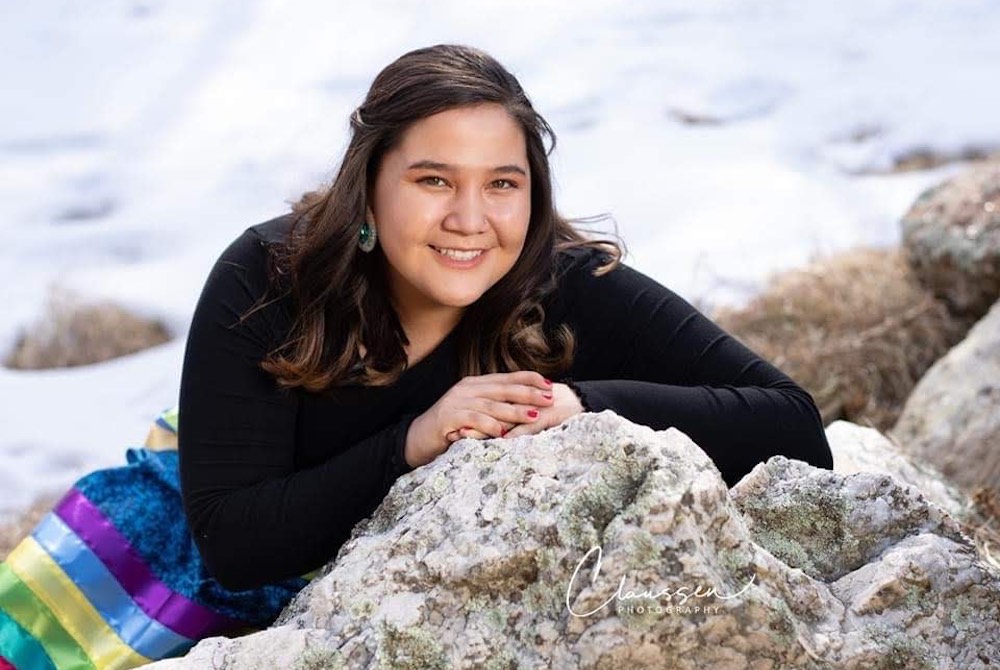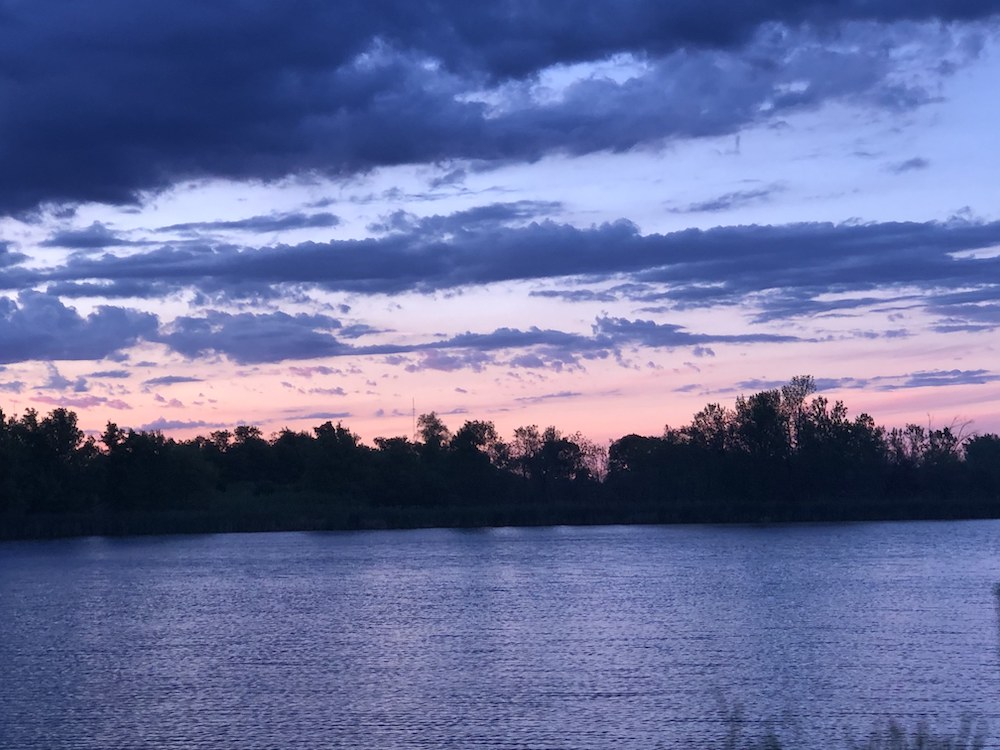
Paisley Sierra is a student at the University of Minnesota, Morris, whose concern for environmental justice grew out of her Oglala Lakota culture's view of the Earth as family. (Provided photo)
As I look across the horizon, I can see the hills run for miles and miles. Focusing on the sky and becoming entranced in the different colors of the sunset, along with the stars beginning to shine as the day comes to an end, I sit here and listen to the different sounds, taking in the beauty that surrounds me.
It is at this moment when I find myself at peace, when I acknowledge the energies around me and try to center myself between spirituality and reality. This balance is how I grew my passion for environmental justice.
I grew up on the Pine Ridge Reservation and my indigeneity is what helped me to identify the connection between me and Uŋčí Makȟa (Mother Earth). I never fully recognized how different Indigenous beliefs toward the environment are compared to how non-natives view the environment.
Indigenous cultures revolve around this idea of equality with the Earth and can notice the different energies within every living thing on a spiritual level. We have lived off the land for generations and come to see it as equal to us. This connection is something that I believe to be unique to Indigenous peoples.
On the other hand, non-native peoples seem to have a physical sense of the Earth being important for every life form and understand the need to take care of it but lack the emotional and spiritual sense of importance that the Earth holds.
Now with environmental justice comes the understanding of the land, specifically the unpleasant history of it. In the United States, this history is particularly important because of how the government took the land from the people who were occupying it in the first place.
Advertisement
Historically, those who are not people of color have treated the environment as an object to gain profit from and have forced Indigenous peoples off their land in order to gain a sense of power and control. Ironically, in modern times, those who are not people of color have been seeking guidance from Indigenous peoples, whom their ancestors ridiculed for their culture, to understand the land that their ancestors stole.
This history is what has created my distrust of some of the people in power who claim to support environmentalism, but who will also support the oil industry and other large corporations. These people will put money over the environment if given the opportunity to do so. The land is seen as expendable, but in reality the land has lived and will continue to live without us. It is we who are expendable to the land, not the other way around.
I believe that gaining that spiritual sense of the environment is what would put others into that mindset of how to take care of yourself and take care of the world around you. This mindset is one that is difficult to fully understand, because people tend to put the environment over their own well-being or vice versa.
In reality, you need to be able to find that balance between your passion for environmental justice and your own mental health, because they both work within each other. Scientifically, the Earth is very similar to how the body works, meaning that your physical, mental and emotional well-being is like a smaller version of our environment. If you aren't able to take care of your own mental, emotional and physical self, then how do you expect to successfully take care of the planet?
When I realized how my personal well-being and my passion for the environment connected to one another, I learned to find that balance between them. On the days my mental health is at a low, I tend to do anything that involves going outside and being alone because at these moments I can think clearly.
Most times I pray; other times I just rant to the world around me, because I know that Uŋčí Makȟa is listening to me. I look out to the world and I feel a sense of protection from her. As she listens to me, I listen to her. The heartbeat of the Earth goes unnoticed, but once your body, mind and spirit intertwine with hers, it’s a beautiful sound that you’ll never forget.

For the author, watching a sunset is a way of recovering spiritual and emotional balance. (Paisley Sierra)
[Paisley Sierra is a student at the University of Minnesota, Morris, whose concern for environmental justice grew out of her Oglala Lakota culture's view of the Earth as family and her knowledge of social issues in today's world. One event that helped clarify those views was an Ignatian Family Teach-In for Justice in November 2019.]





